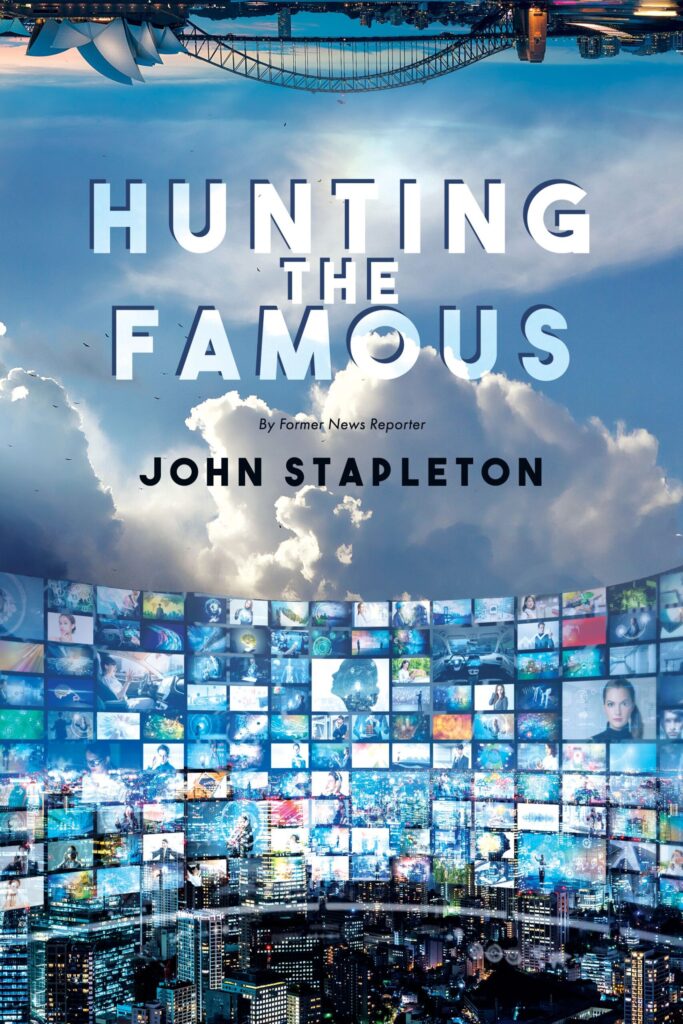These are the journalism based books which have managed to struggle into the light.
There are a others perhaps best left mouldering in the bottom drawer.
The daily robbing, bashing, drugging, extortion and murder of foreign tourists on Thai soil, along with numerous scandals involving unsafe facilities and well established scams, has led to frequent predictions that Thailand’s multi-billion dollar tourist industry will self-destruct. Instead tourist numbers more than doubled in the decade to 2014. The world might not have come to the hometowns of the many visitors fascinated by Thailand, but it certainly came to the Land of Smiles.
While the Thai media is heavily censored, and bad news stories about tourists suppressed, nonetheless there is more than enough evidence to demonstrate that something has gone seriously awry with the nation’s tourist industry.
In 2014, just as in the years preceding it, there were train, bus, ferry, speedboat, motorbike and car accidents, murders, knifings, unexplained deaths, numerous suicides, diving accidents, robberies gone wrong, anonymous bodies washing up on the shores and a string of alcohol and drug related incidents.
Thailand had a dying king and serious succession problems, weak democratic institutions, an economy slipping into recession, faced issues of corruption across many of its key services and was host to international crime syndicates, awash with despised foreigners and drifting perilously towards civil war.
Tourists choose one destination over another for a number of reasons, most of which Thailand scores highly on. But on the core issue of tourist safety, Thailand scores very badly indeed.
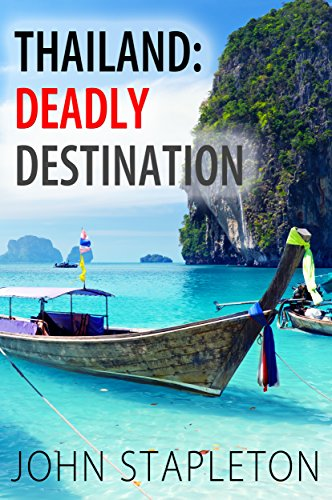
Terror in Australia: Workers’ Paradise Lost, by veteran journalist John Stapleton, is a beautifully written snapshot of a pivotal turning point in the history of the so-called Lucky Country.
This book is a sidewinding missile into the heart of Australian hypocrisy.
In 2015 there were well attended Reclaim Australia demonstrations in every major capital city, all protesting what the demonstrators saw as the growing Islamisation of Australia, along with countering anti-racism demonstrations. There were frequent violent clashes, hundreds of police were forced to form lines separating the demonstrators in Sydney and Melbourne, there were a significant number of arrests and injuries, and dozens of people were treated for the effects of capsicum spray. The terror alert was at its highest level ever, the country was engaged in an unpopular and discredited war in Iraq and Syria, and relations between the government and an increasingly radicalised Muslim minority had broken down.
Despite the billions being spent on national security, authorities believed another terrorist attack was inevitable.
A demoralised population, saddled with a history of grotesque overregulation, turned inwards, increasingly questioning the failed social creeds of the past.
On the streets once vibrant entertainment districts were desolate, while closed and shuttered shops became a characteristic of many suburbs.
An optimistic, freedom loving country with an irreverent, larrikin culture and a wildly optimistic view of its place in the world lost faith in its own story.
Well documented, switching through multiple points of view, Terror in Australia: Workers’ Paradise Lost is a sometimes frightening, sometimes intensely lyrical step inside a democracy in serious trouble.
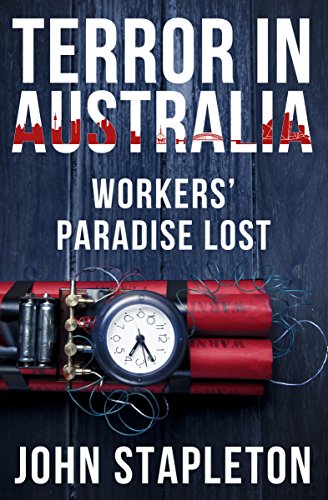
Thirty seven years after the end of the Vietnam War an historic event occurred at busy Da Nang Airport, an Agent Orange hot spot where tonnes of the infamous herbicide were decanted and reloaded on to cargo planes for spraying across the country’s lush fields and forests.
Dioxin, the accidental contaminant in Agent Orange responsible for many tens of thousands of birth defects and early deaths, is regarded as probably the most poisonous of all the compounds ever devised by man.
This 10,000 word page primer records the events which lead up to the year when the wrongs of the past were finally addressed in joint efforts by the American and Vietnamese governments.
This short book is the perfect way to bring yourself up to date on this vexed and long running issue.
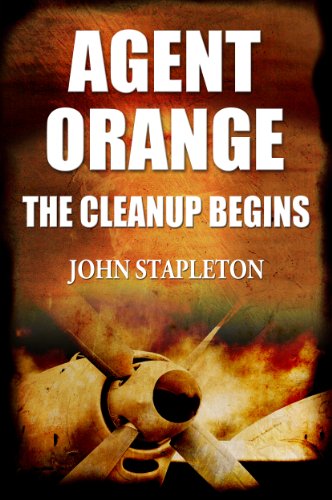
Hideout in the Apocalypse is about surveillance and the crushing of Australia’s larrikin culture.
In the last three years the Australian government has prosecuted the greatest assault on freedom of speech in the nation’s history.
The government knew from international research that when it introduced the panopticon, universal surveillance, into Australia it would have a devastating impact on the culture.
When people know they are being watched, they behave differently. Dissent is stifled, conformity becomes the norm. This is the so-called chilling effect.
Hideout in the Apocalypse, in the great tradition of The Lucky Country, takes Australia’s temperature half a century on from Donald Horne’s classic cautionary tale.
Now the future has arrived. Forced by a plethora of new laws targeting journalists to use novelistic techniques, in his latest book veteran news reporter John Stapleton confirms the old adage, truth is stranger than fiction.
Hideout in the Apocalypse takes up the adventures of retired news reporter Old Alex, first encountered in the book’s predecessor Terror in Australia: Workers’ Paradise Lost. But as befits the times, this book is more fantastical, intimate and politically acerbic in its portrait of his beloved country.
Alex believes believes he has been under abusive levels of government surveillance since writing a book called Terror in Australia, and as a natural empath can hear the thoughts of the surveillance teams on his track, the so-called Watchers on the Watch. Alex also believes he is a cluster soul sent with others of his kind to help save the Earth from an impending apocalypse, and has the capacity to channel some of history’s greatest writers.
Australia might have the worst anti-freedom of speech laws in the Western world, but how can you sue a character like that?
Stapleton’s essential theme: a place which should have been safe from an impending apocalypse, the quagmire of religious wars enveloping the Middle East, is not safe at all.
Ideas are contagious, and the Australian government is afraid of them. Australia is a democracy in name only. The war on terror has become a war on the people’s right to know, justifying a massive expansion of state power.
Alex’s swirling head, lifelong fascination with sociology, literature and journalism, and his deep distress over the fate of the Great Southern Land, makes him the perfect character to tell a story which urgently needs to be told.
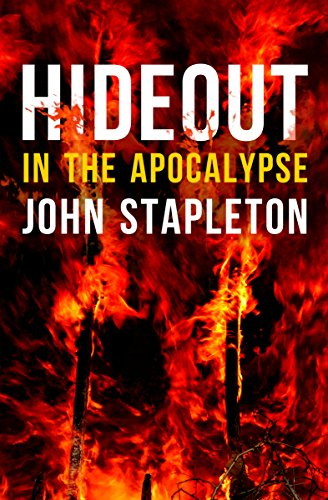
Dark Dark Policing compels the reader’s concentration as it documents a nation polarised between the working poor and the uber rich at a time when ultranationalist groups are on the rise.
Written with hallucinatory intensity by one of Australia’s most experienced journalists, author John Stapleton, it uses novelistic techniques to depict Australia during the early millennial period, a pivotal point in its history.
Dark Dark Policing is seen through the eyes of a crumpled old newspaper reporter whose visionary imagination drives him from the arid lands of the interior to confront the nation’s plethora of ultra-secret security agencies.
He speaks with an incandescent rage of the destruction of his beloved country.
Driven by the unalloyed greed of the nation’s oligarchy, indifference to the working poor and shocking levels of government incompetence, Australia is a polarised country where revolutionary sentiment and totalitarian impulses now thrive.
With incendiary intent and urgent flights of fantasy, entwined with extensive reportage, Stapleton responds savagely to a conservative government’s destruction of free speech and the surveillance of journalists.
It’s 2020, and Australians have endured extremely poor governance at federal, state and local levels for decades, and must live with the consequences. A dishonest government is a paranoid government, and intrusive surveillance of everyone from nationalist groups to the Muslim minority fires indignation at home and abroad.
The Australian government had one operating principle: plunder the poor, give to the rich. Overtaxed and over regulated, when the coronavirus hit much of the population did not have the resources to cope. A million workers joined the dole queues within days. This is the story of a once optimistic country.
Dark Dark Policing is a must read for anyone interested in the failure of democracies worldwide. It is the third volume in the series which began with Terror in Australia: Workers’ Paradise Lost and was followed by Hideout in the Apocalypse. The books can be read separately or together.
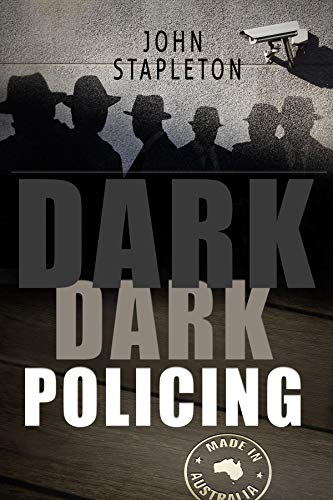
“Combining meticulous research with thoughtful personal reflection, this is a devastating indictment of Australia’s response to the Covid pandemic.” Steve Waterson, The Australian.
“Well researched, courageous and revealing of the truth. One of Australia’s most important books this century. A must read. Unfolding Catastrophe couldn’t be more timely, coming at a pivotal point in our nation’s history.” Guy Campbell, GP.
Unfolding Catastrophe: Australia aims to dismember the political, administrative and social derangement which has overtaken Australia since the early days of 2020.
Australia’s democracy has proved virus thin. There has never been a more politicised and thereby more disastrously mismanaged disease. Eighteen months on from the country’s first COVID death Australia is almost unrecognisable.
The Australian government ignored all the cautionary tales emanating from some of the world’s leading tertiary institutions, all warning that lockdowns were a dangerous social experiment which would do more harm than good. The result has been an authoritarian derangement, with military on the streets, unprecedented levels of highly aggressive policing, a dramatic loss of liberties, thousands marching in the streets and uber surveillance at a level previously unimaginable.
Government overreach has destroyed all the nation’s traditional freedoms, from barbeques in the backyard to going to the beach. By mid-2021 half the population were enduring what amounted to house arrest under some of the most extreme lockdown measures seen anywhere in the world. State borders opened and shut on a single case, tens of thousands of businesses had been destroyed; and the national debt quadrupled. All the while Australia’s Big End of Town grew vastly richer.
Unfolding Catastrophe: Australia tells the story of the nation through the eyes of a retired reporter, switching from street scenes to reportage while incorporating the work of some of the country’s leading journalists and academics.
As one of Australia’s most experienced general news reporters, having worked on two of the country’s leading newspapers The Australian and The Sydney Morning Herald for a quarter of a century, John Stapleton is uniquely placed to tell this story. His experience in publishing a wide range of hard hitting material sceptical of Australia’s COVID response in his publication A Sense of Place Magazine forms the backbone of Unfolding Catastrophe: Australia.
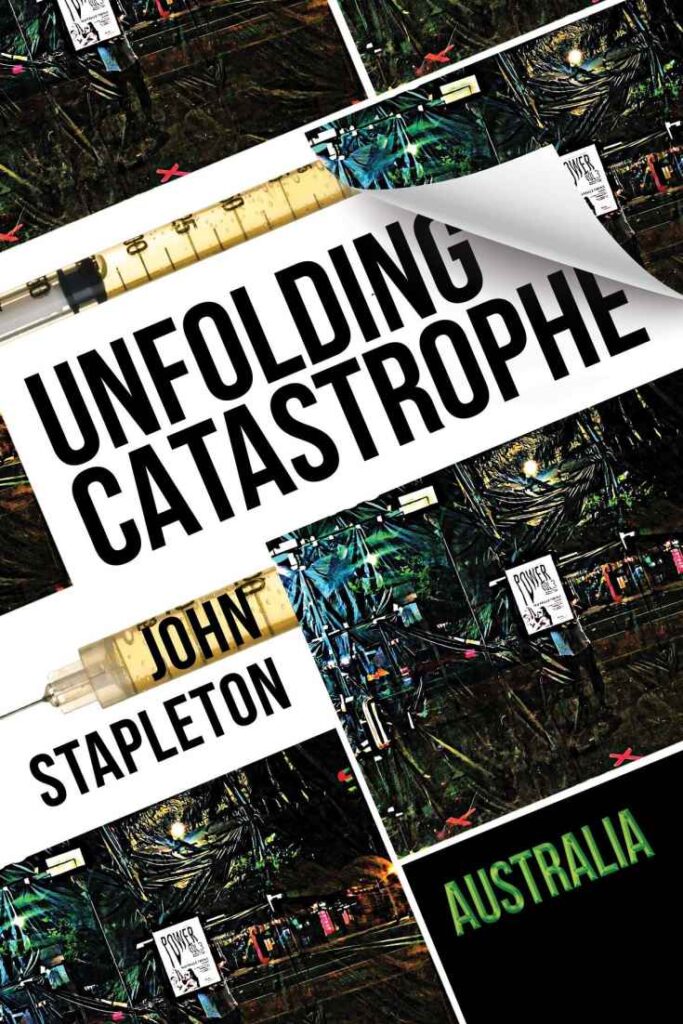
The humanitarian crimes committed by Australian authorities against their own citizens, beginning in early 2020, will live on in infamy, but it is the people themselves who create a nation’s history.
On the 12th of February 2022, the largest gathering of Australians in the nation’s history marched on the National Parliament in Canberra to protest the totalitarianism of the Australian Government, chanting “Sack Them All, Sack Them All”.
Crowd numbers are notoriously difficult to calculate and prone to distortion, but whatever the number, no politician, intelligence agency, police force or political strategist in Australia failed to notice that a massive number of people marched on the nation’s capital, with a remarkable amount of good cheer, jubilance and camaraderie; character traits which the nation’s leaders had failed to show in the years of authoritarian derangement.
Between 2020 and 2022 Australia was gripped by a madness which was spiritual, administrative, political, social and judicial in its dimensions. Australians who stood up against the rising tide of tyranny found themselves pepper sprayed, bashed by police, fined and imprisoned in dictatorial abuses which made headlines around the world, a warning to the world against Covid overreach.
A nation which once prided itself on its laissez faire approach to life and the friendly, easy going nature of its population lay besmirched by a descent into totalitarianism. All the systems Australians had come to rely on failed them at their time of greatest need, every last one of them: the mainstream media, the social media platforms, the legal, medical and academic professions, politicians, bureaucrats, the police, the military and the nation’s intelligence agencies.
Australia’s democracy proved virus thin.
Retired news reporter John Stapleton shines a light on one of the darkest episodes in the Australian story. Australia Breaks Apart is a fine demonstration of the old saying, journalism is the first draft of history.
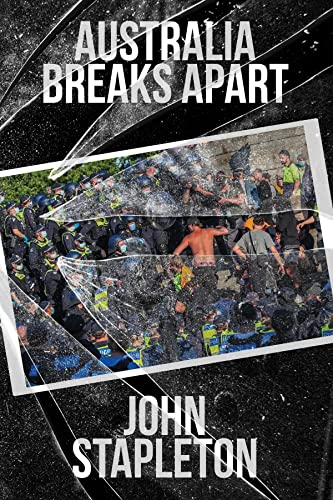
Chaos At The Crossroads tells the story of the long struggle for family law reform in Australia. It also tells the story of the formation of Dads On The Air. What began with a small group of disgruntled separated men in Western Sydney in 2000 has gone on to become the world’s longest running and most famous radio program dedicated to issues around fatherhood, regularly interviewing national and international activists, advocates, academics and authors. Its archives now present a fascinating history of the men’s and fatherhood movement of the early part of the millennium.
Dads On The Air was strategically placed to cover the push for family law reform in Australia. Despite the founder’s intent that shared parenting be the norm for the so-called “helping” court aka The Family Court of Australia, and subsequent legislative attempts to impose shared parenting post separation as the most civilised outcome for separating couples, such was never to be. The Family Court rapidly became a law unto itself, imposing sole mother custody on separating families, despite all the documented harm of this style of custody order, denying fathers contact with their children on the flimsiest of excuses. Overly legalistic, enormously bureaucratic, secretive and unaccountable, defying public norms of decency and probity, it soon became one of the country’s most hated institutions. To this day it has remained remarkable resistant to reform and indifferent to the public odium it attracts.
Chaos At The Crossroads concludes: Successive governments from both left and right have failed to listen to their constituents and respond to their concerns. They have resorted to vested inquiries in the hands of the mandarins and publicly funded elites whose feigned attempts to listen to the views of ordinary people have then been heavily reinterpreted. They have delayed progress through the extensive manipulation of committees or other forms of alleged inquiry.These same governments, even when they were enacting legislative reforms, left their enforcement in the hands of institutions notoriously resistant to change. They allowed or encouraged fashionable ideology, institutional inertia and bureaucracy to triumph over common sense. Common decency was lost long ago.
“In terms of human suffering, the Australian public has already paid dearly for the failure to reform outdated, badly administered and inappropriate institutions dealing with family law and child support – and for the failure of governments to take seriously the experiences and voices of the men and women most directly affected by them. The country’s failure to reform family law and child support is ultimately a failure of democracy itself.”
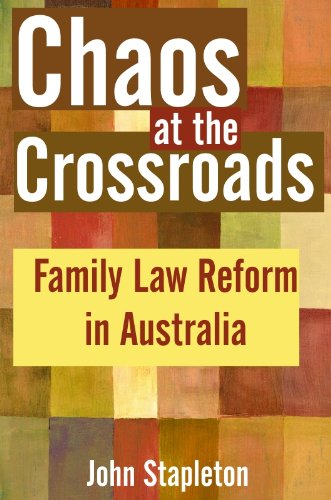
Dads On The Air, often shortened to DOTA, is a community radio program which began in western Sydney in August of 2000 with a small group of extremely disgruntled separated men who had no experience of radio and no resources. The author of Chaos at the Crossroads: The Birth of Dads On The Air, William John Stapleton, worked as a mainstream journalist and was the only one with any media experience.
The series of short books in the Chaos at the Crossroads series tell the story of the long struggle for family law reform in Australia, not just by separated fathers, their supporters and their lobby groups, but by grandparents and other family members cut out of children’s lives by the discriminatory and destructive sole-custody model purveyed by the court.
Chaos also tells the story of how, from the humble beginnings of a disheveled group of disgruntled separated fathers, Dads On The Air became the world’s most famous radio program dedicated to fatherhood issues.
The program evolved with the information revolution. The technology which would allow a small group of people with few resources to make available a weekly 90 minute radio program and give it the penetration and power it went on to achieve simply had not existed five years before. Dads On The Air has over time interviewed almost all the world’s leading national and international activists, advocates, academics and authors.
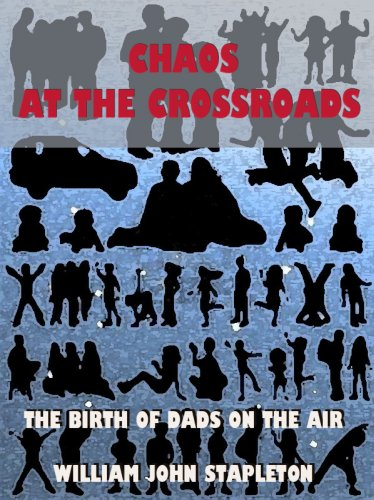
Despite the heat the issue of divorce, separation and the welfare of children had been generating for decades, the Australian Government was slow to address family law reform. While more than a million children were listed with the Child Support Agency, an institution as roundly and profoundly despised as the Family Court itself, politicians were reluctant to move into such an emotionally charged and gendered arena. Finally, with an increasingly large number of disenchanted constituents, the government had little choice but to move. As one Member of Parliament said, the level of anger in the community was “frightening”.
The massive wave of supportive media following the then Prime Minister of Australia John Howard’s announcement of an inquiry into joint custody in mid-June of 2003 demonstrated that Australia’s wiliest conservative politicians had hit on a raw nerve. Whatever the faults and frustrations in the prolonged and frustrating path towards shared parenting that was to follow, the Inquiry itself produced solid evidence on the state of dysfunction prevailing in the courts and bureaucracies dealing with the more than 50,000 couples a year who had fallen out with each other; but not with their offspring.
No one reading the transcripts of the Inquiry, which conducted hearings around Australia and took hundreds of submissions, could be left under any illusion about the distress being caused by the prevailing sole-mother custody model.
This book traces the history of family law reform in Australia and its contentious treatment of non-custodial parents by the Family Court, usually but not always fathers, and documents its resistance to change despite the public odium in which Australia’s Family Court is often held. What happened in Australia has relevance for fathers and campaigners for divorce reform around the world.
The series, which evolved out of what is now the world’s longest running father’s radio program Dads On The Air of which the author was a founding member, is the most complete record available of the prolonged push to change the nation’s dysfunctional family law system.
This is the third book in the series Chaos At The Crossroads, which is the most definitive record ever published of the long struggle for family law reform by fathers and their sympathisers, as well as second families, grandparents and non-custodial mothers. The books are designed so they can be read separately or together. Others in the series include The Birth of Dads On The Air, Chaos at the Crossroads: In the Beginning, State Created Pain and The Final Days of Alastair Nicholson.
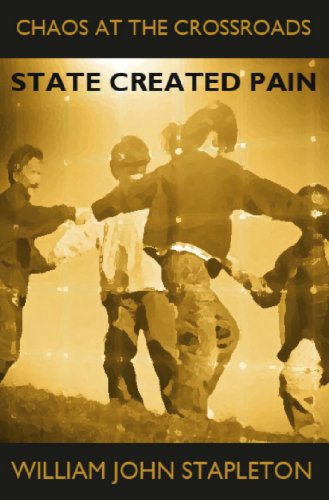
Refusing to hide, Chief Justice of the Family Court of Australia Alastair Nicholson, scheduled to appear before an inquiry into family law and child support, entered Australia’s Parliament House in Canberra via the front door on the 10th October 2003.
As Chief Justice of one of the most unpopular courts in the country, Nicholson had become a key figure fuelling discontent with Australia’s political, bureaucratic and judicial wings of government. With millions of Australians having gone through the shredder of the country’s divorce regime, he had become a focus for community discontent.
So heightened had the debate around Nicholson become that politicians rightly feared the general public were losing faith in the country’s governance.
Nicholson was arguably the single most outspoken, certainly the most controversial judge ever to serve in the Australian court system; deeply hated by some, admired by others. Politicians from both sides of politics had reason to fear his ever ready tongue.
The appearance before the Inquiry of the one man who had done more to shape the nature of Australian family law than any other individual had been looked forward to by his critics with a kind of wonder and anticipation, a fascination for the grotesque.
Despite a plethora of Inquiries, including a devastating critique from the government’s chief adviser on legal matters the Australian Law Reform Commission, doubt was not a trait Nicholson ever displayed in public.
Was this the inquiry which would finally nail him to the wall?
To the chagrin of his critics, Nicholson showed not a sliver of regret or self-doubt. He has continued to be outspoken since his retirement from the bench and move into academic life.
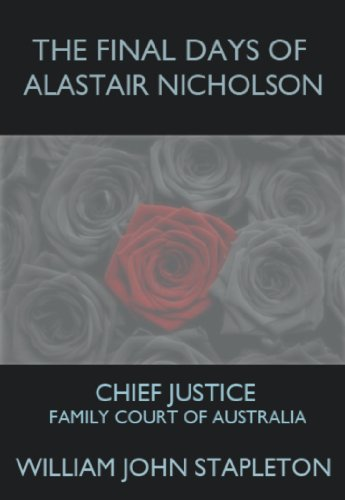
Coming Soon!
